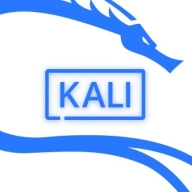

Oracle Solaris and Kali Linux are compared as enterprise operating systems with specific strengths. Oracle Solaris has an edge in enterprise features and support, whereas Kali Linux stands out in penetration testing capabilities.
Features: Oracle Solaris users value its scalability, reliability, and integration capabilities. Kali Linux users appreciate its extensive penetration testing tools, regular updates, and high configurability.
Room for Improvement: Oracle Solaris could enhance compatibility with newer hardware, simplify configuration, and streamline system integration. Kali Linux needs more user-friendly documentation, an easier setup process, and improved overall usability.
Ease of Deployment and Customer Service: Oracle Solaris is complex to deploy, needing specific expertise and high resources, but offers reliable customer support. Kali Linux has a straightforward deployment process with fewer support options.
Pricing and ROI: Oracle Solaris has high setup costs, justified by long-term stability and performance ROI. Kali Linux, often free or low-cost, provides high ROI for network security needs.
Integrating Kali Linux with DevOps tools has resulted in reduced operational costs due to automated test cases, making it a worthwhile investment with significant returns by decreasing the attack surface area and the frequency of attack incidents.
If we had installed it on-premises or through other means, it would have incurred significant money and effort to create the VMs, deploy it on machines, and then delete and format it after use.
I have saved time by avoiding the lag I sometimes face on the TryHackMe in-built machine, and I have learned more efficiently.
In terms of ROI, there have been performance improvements because Oracle Solaris is lighter.
Since most of the tools and other things are community-based, the documentation and other community support are very good.
I was able to solve the problems I was experiencing.
The technical support by Oracle is good.
You can use it on cloud, VPS, and on-premises.
Regarding the scalability of Kali Linux for my work and projects, whenever I was conducting brute force attacks and provided more than two or three million lines of payload, the system would freeze.
I find Kali Linux very scalable.
Regarding vertical scalability, Oracle Solaris is probably one of the most scalable operating systems in the industry.
Kali Linux is stable for my use cases, though not the latest version.
Kali Linux is very stable for my needs.
In my experience, Kali Linux is quite stable.
If real-time customized port scanning can be added, for example, instead of a default port such as 8080 or 443, if we can use a customized port such as 9876, that capability would be great.
I face significant challenges with Kali Linux regarding a major issue with the Grub loader becoming corrupted, which makes it very difficult to recover data.
Making Kali Linux more customizable would allow users to personalize it to their style.
The firewall must be more capable because security is the main concern of every organization and every user.
Oracle Solaris needs to improve its compatibility with office tools like Excel.
Oracle is going to discontinue it, so I do not think any improvement is possible in Oracle Solaris.
Kali Linux is free software, an operating system that's available to download without any cost or licensing fees.
I simply create a VM, so there are no costs involved.
My experience with pricing, setup costs, and licensing for Kali Linux has been positive, as it operates under an open-source model.
I find the pricing of Oracle Solaris to be affordable compared to competitors like Windows.
Kali Linux has positively impacted my organization by improving efficiency in penetration testing; its open-source nature permits extensive customization and inclusion of numerous comprehensive pre-installed tools, contributing to a secure network environment with effective monitoring of network applications.
A unique and really helpful feature of Kali Linux, compared to other operating systems, is that many of the offensive security tools are already pre-configured and pre-installed.
Kali Linux positively impacts my organization by allowing us to monitor changes and security posture for the company.
The operating system is lightweight, which makes it easier to use on an average computer compared to systems like Windows.
Additionally, regarding security, you do not have to implement any antivirus software.
Oracle introduced a GUI environment with Solaris 11.5.
| Product | Market Share (%) |
|---|---|
| Kali Linux | 3.2% |
| Oracle Solaris | 1.9% |
| Other | 94.9% |


| Company Size | Count |
|---|---|
| Small Business | 10 |
| Midsize Enterprise | 2 |
| Large Enterprise | 15 |
| Company Size | Count |
|---|---|
| Small Business | 21 |
| Midsize Enterprise | 5 |
| Large Enterprise | 32 |
Kali Linux is widely used by organizations for penetration testing, vulnerability assessments, web application security, network audits, ethical hacking, and open-source intelligence, providing extensive free features.
Organizations run Kali Linux in virtualized environments alongside other operating systems, employing tools for automated scans, malware identification, infrastructure testing, and application development or hosting. These users benefit from lower maintenance requirements and a smaller footprint. The toolset includes Nmap, SQLMap, Metasploit, and Hydra, ensuring effective security assessments. Its high scalability, performance, user-friendly interface, and extensive documentation enhance the platform's usability. Known for stability, flexibility, and virus resistance, Kali Linux supports web security, troubleshooting, and configuration tasks comprehensively.
What are the most important features of Kali Linux?
What benefits and ROI should users look for in reviews?
Kali Linux can support industries in improving security through stable and flexible environments that resist viruses and provide extensive documentation. Users employ it for web security, troubleshooting, and configuring capabilities. Necessary improvements include automation, user-friendliness, and integrating AI and blockchain. Enhancements in security features, faster installations, and better learning tools are also essential. Machine learning integration and non-enterprise user functionalities can address current limitations.
Oracle Solaris is a trusted business platform that provides consistent compatibility, is simple to use, is always secure, and is designed to help you run your modern and legacy enterprise applications. The solution is the most recommended enterprise operating system for Oracle Database and Java applications and is engineered for large-scale enterprise deployments.
Oracle Solaris Features
Oracle Solaris has many valuable key features. Some of the most useful ones include:
Oracle Solaris Benefits
There are many benefits to implementing Oracle Solaris. Some of the biggest advantages the solution offers include:
Reviews from Real Users
Below are some reviews and helpful feedback written by PeerSpot users currently using the Oracle Solaris solution.
A CEO at a computer software company says, “The most valuable feature is virtualization. They have attained virtualization and it's quite simple to create the Oracle Solaris zones. The solution is quite powerful. Oracle Solaris is great due to the fact that it actually is meant for high-end servers. The high availability is great. You can clone and you can do quite a number of things with them. There's also the ZFS File system which is very good. Is one of the best file systems that there is.”
Diego A., Oracle ACE - Specialized in Systems Technologies at Telecom Argentina, mentions, “The most valuable features for me are virtualization (Containers, Zones, Security, PDOM's, LDOM's) and Performance, ZFS, Debugging with Dtrace.”
A Service Manager at a tech services company expresses that the solution is “Stable, scalable, and has easy installation.”
PeerSpot user Marcel H., Oracle ACE Director "Solaris," CEO, Enterprise Consultant at JomaSoft, explains, “Solaris includes two virtualization solutions: LDoms for SPARC and Solaris Zones. Both solutions can be combined to create private clouds. Solaris Zones is ideal to separate applications and to migrate from older to current hardware. LDoms is very efficient because it uses the hardware hypervisor of the SPARC servers. Both technologies increase Security, because they separate the applications from each other. Using the Security Compliance Framework we are sure the systems are set up properly.”
Shafiq K., Senior Manager IT Operations at a financial services firm, states, “The reliability of the solution is excellent. The security has been very good overall. We've found the solution to have good availability. The backup capabilities are quite good. The solution has proven to be quite stable so far. The product can scale. The solution is 100% free to use. It doesn't cost a company anything as it's embedded in the hardware.”
We monitor all Operating Systems (OS) for Business reviews to prevent fraudulent reviews and keep review quality high. We do not post reviews by company employees or direct competitors. We validate each review for authenticity via cross-reference with LinkedIn, and personal follow-up with the reviewer when necessary.